In our daily activities and at our projects we create a lot of different educational materials, which we are happy to share with all of our friends and colleagues. If you have any questions or suggestions, write to us at [email protected]
Starting from 2020 Logos, together with partners from Romania (Un strop de fericire), Sweden (Awesome people) and Portugal (Asociaciao Animam Viventem) developed a “Secret Code for Active Citizenship” Strategic Partnership project. We wanted youth to become the next “change makers” of their local/global communities, meaning active citizens that have, not only, the skills and capacity to engage, as well as a sense of self-worth, purpose, awareness and social responsibility, creating a European Network. Together with youth workers aware and skilful for addressing youth needs and partners empowered with a cross-sectorial knowledge and a European strong network. Within the project we developed tools that can be used by Youth workers:
- Portable escape room toolkits– Instructions on how to build, lead and disseminate portable Escape Rooms on the Topic of Active Citizenship
- Change Makers Academy Program– This program aims not only at providing means and resources to get young people involved. It also aims at offering an accessible approach to the rather abstract and complex notion of Active Citizenship and what it takes to be active citizens. Consequently, before getting down to business, it is very important to better understand what is the meaning of Active Citizenship, what set of skills it requires and what can we consider to be active citizenship actions.
- Escape Rooms tutorial videos– Video tutorials explaining the rules and settings of building an Escape Room.
- Map platform– an interactive platform, where anyone with a good social idea can share it and anyone who would like to join, crowdfund or even spread can easily do it.

Since 2017 Logos has been developing the idea of using escape rooms for education. Escape rooms are usually used for fun and
entertainment, but we decided that they can be an interesting tool when speaking about important and serious topics such as human rights. We implemented several training courses since then and taught around 200 youth workers on how to build their own escape rooms for education.
Below you can find toolboxes, that were made for various projects. Each toolbox contains a scenario of the escape room, a plan of the room, a description of the puzzles as well as pictures of the room. If needed anyone can use these toolboxes to build similar rooms anywhere. And if you need help, we are ready to support you. Just write to us at [email protected].
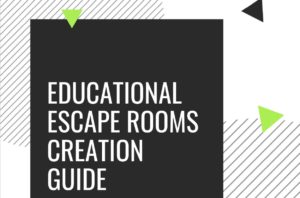
In 2021 we held a training course “Escape to Diversity” supported by the Visegrad Fund where we created a short guide on how to build educational escape rooms. Check it below to understand how you start making an educational escape room, how you choose a room, make puzzles and design interesting story. This guide also contains links to video tutorials that we made to help youth workers build their educational escape rooms.
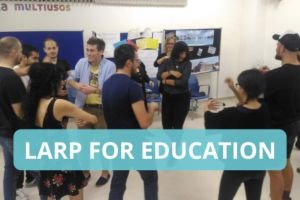
At Logos we are always looking for new ways of education young people on various topics. One of the approaches that we have used several times – Live action role-playing games or shortly LARP game. In LARP game each of the players gets a role, the specific setting, rules, background and goals are created. It is possible to include educational pieces in LARP games. In Nordic countries, LARP is being used for various purposes. We decided to use this method to educate young people about human rights. At several training courses we provided youth workers with information on how to make this kind of games and as a result, we now have toolboxes, which contain all necessary information needed to make educational LARP games on various topics.
1. Toolboxes from iFeel – iDefend project
2. Toolbox from the Get your horizons expanded project
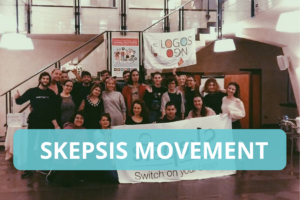 Starting from 2018, together with our partners we are running international movement devoted to critical thinking – Skepsis. We implemented many projects on topics of critical thinking and media literacy within the framework of the movement. At these projects, a lot of educational materials on critical thinking and media literacy were created by participants. Below you can find Google Drive with everything created under the Skepsis movement – videos, posters, workshops, infographics, games and much more. Feel free to use any of it.
Starting from 2018, together with our partners we are running international movement devoted to critical thinking – Skepsis. We implemented many projects on topics of critical thinking and media literacy within the framework of the movement. At these projects, a lot of educational materials on critical thinking and media literacy were created by participants. Below you can find Google Drive with everything created under the Skepsis movement – videos, posters, workshops, infographics, games and much more. Feel free to use any of it.
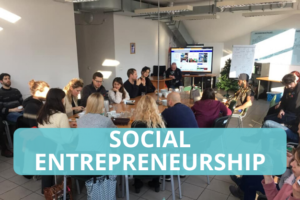 In 2020 Logos, together with our partner – CEFIG implemented training course about social entrepreneurship. During this project we attended various social enterprises in Poznan and learned about how to make similar ones. As a result of the project a toolbox with business ideas was created. Feel free to use it!
In 2020 Logos, together with our partner – CEFIG implemented training course about social entrepreneurship. During this project we attended various social enterprises in Poznan and learned about how to make similar ones. As a result of the project a toolbox with business ideas was created. Feel free to use it!
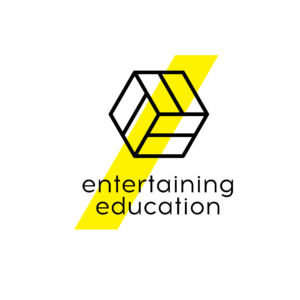
Starting from 2020 Logos together with partners from Czech Republic (CEFIG), Spain (EUducate) and Denmark (Soholm 4H) we developed an “Entertaining Education” Strategic Partnership project in the youth field focused on transferring entrepreneurial skills and the dedication to creating social impact amongst young people. Within the project we developed tools that can be used by Youth workers:
- Social Entrepreneurship Simulation game– 1,5h long game in which you will have a chance to run a social enterprise.
- Escape Room Toolbox– Instructions on how to build an Escape Room on the Topic of Social Entrepreneurship.
- Escape Rooms Guide– Guide explaining the rules and settings of building an Escape Room.
This guide was developed after the training course “Grow, improve, volunteer” which was implemented by Logos in November 2022 with the support of Action Aid. In this guide, you can find information on how to use do-no-harm principles, how to provide first aid, deal with conflicts and much more. We used the knowledge and experience gained at the training course to develop this guide.
This guide will be useful for NGOs, volunteers, youth workers and anyone who wants to help refugees as a volunteer. Feel free to contact us if you have any questions at [email protected]
This guide was developed after the training course “Solidarity Powerr” which was implemented by AFR and Logos in November 2022 with the support of Erasmus+ programme. In this guide, you can find information about Solidarity Projects, project management tools and coaching. We used the knowledge and experience gained at the training course to develop this guide.
This guide will be useful for NGOs, volunteers, youth workers and young people who want to develop their own Solidarity Project or support young people in its implementation. Feel free to contact us if you have any questions at [email protected]
In December 2022 we conducted 100 interviews with Ukrainian refugees in Poznan. We tried to understand their needs and interests. The results of these interviews were compiled into the analytical report which you can find below.
